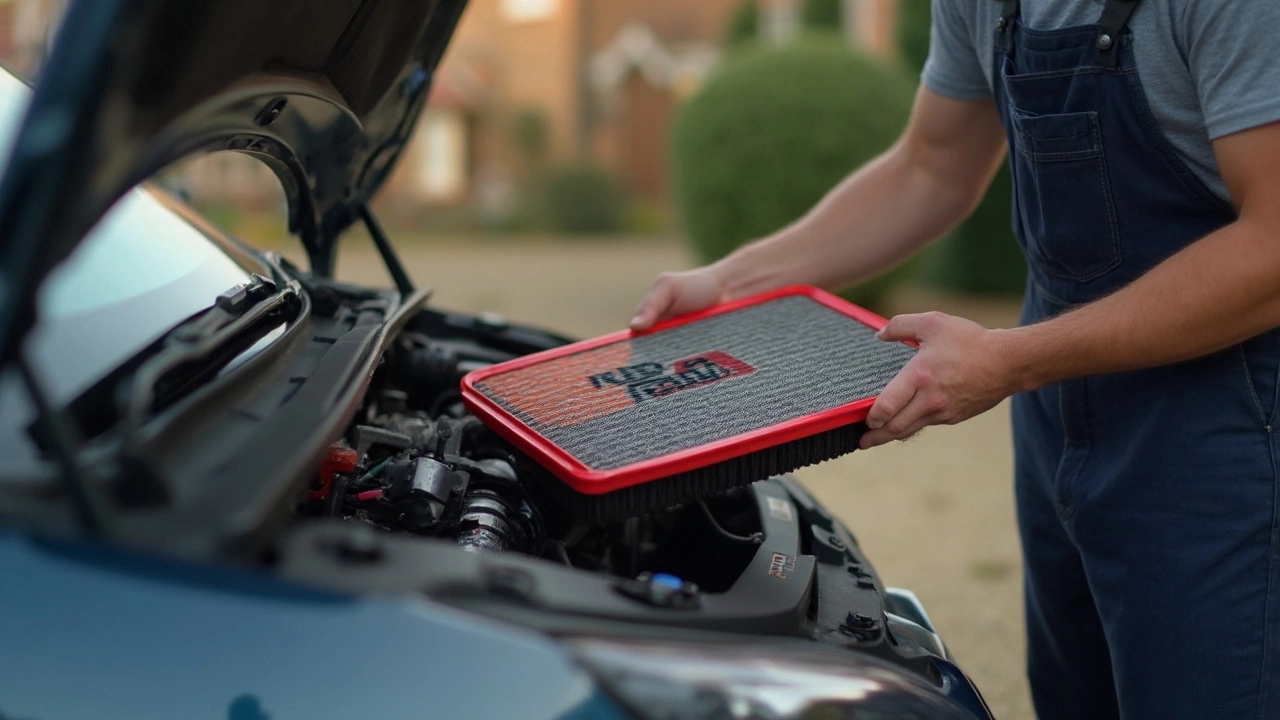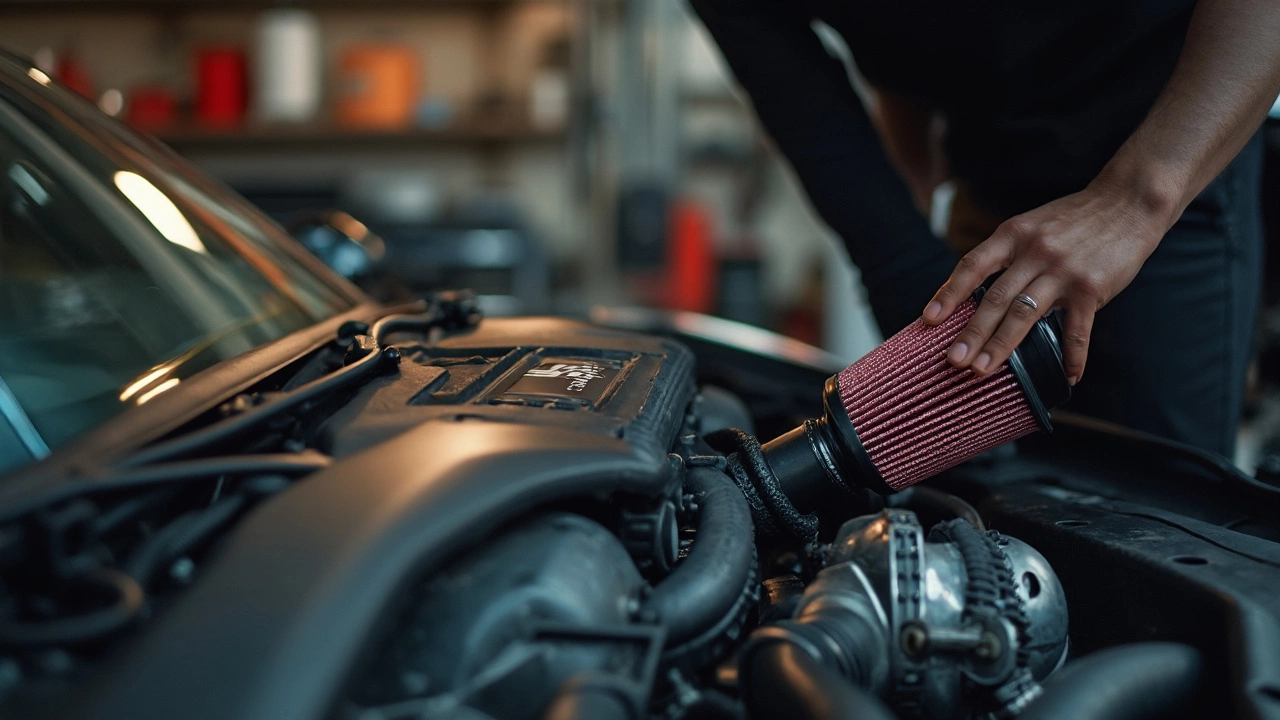If you’ve ever wondered why car enthusiasts keep talking about K&N air filters, you’re not alone. They’re not just another accessory – they’re a practical upgrade that can give you more power, better fuel mileage, and a cleaner engine. In this guide we’ll break down the benefits, show you how to fit one yourself, and share maintenance tips that keep the filter working like new.
K&N filters use a high‑flow cotton media that lets more air into the intake than a typical paper filter. More air means the engine can burn fuel more efficiently, which translates to a noticeable bump in horsepower and torque. Most owners report a 5‑10% gain in horsepower and a similar improvement in throttle response.
Another win is cost‑effectiveness. A paper filter needs to be replaced every 12‑15 000 km, but a K&N filter is washable and reusable for the life of the car. You’ll spend a little more upfront, then skip the endless stream of cheap replacements. Over a few years the savings can cover the original price and then some.
Because the filter stays dry and clean, it also reduces engine wear. A dirty stock filter lets dust slurry into the cylinders, which can erode piston rings and valve seats. The cotton media traps particles while staying clear, so the engine breathes easier and stays healthier longer.
Installing a K&N filter is a quick DIY job. Most kits include a proper housing that bolts right over the old filter spot. First, remove the stock filter and clean the housing with a rag. Then place the new K&N filter inside, secure the housing, and tighten the bolts to the torque spec in your owner’s manual. No special tools required – a socket set will do.
Maintenance is just as easy. After about every 12‑15 000 km (or when you notice a drop in performance), take the filter out and give it a light tap to shake off loose debris. Next, wash it in warm, soapy water – K&N sells a dedicated cleaning kit, but a mild dish detergent works fine. Rinse thoroughly, let it air‑dry completely, then spray the filter with the included oil. The oil coats the cotton fibers and restores the filter’s ability to trap dust while letting air flow freely.
Don’t over‑oil – a thin, even coat is enough. Too much oil can cause the filter to attract more dirt and even trigger the engine’s airflow sensor. A quick visual check will tell you if the coating looks uniform. If you’re unsure, a second light spray will even it out.
While you’re working on the intake, it’s a good time to glance at related upgrades. Lowering springs or coilovers can change airflow dynamics, and a clean K&N filter helps the engine adapt to the new stance. Likewise, if you’re tweaking your exhaust or adding a performance chip, keep an eye on the filter’s condition – a clogged filter can negate the gains from other mods.
In short, a K&N air filter is a low‑effort, high‑reward upgrade. It boosts power, saves money on replacements, and protects your engine from dust damage. Follow the simple install steps, clean it regularly, and you’ll enjoy a healthier, more responsive ride for years to come.

K&N air filters are popular in the car world, especially with folks looking for more power and better engine sound. This article covers the real benefits, like reusable design and better airflow, alongside common downsides, such as possible issues with filtration and warranty concerns. You'll find real-world tips and examples from drivers who’ve tried them out. If you're thinking about swapping your old filter for a K&N, this breakdown will make the choice clearer. Get to know whether these filters suit your car, your driving style, and your budget.

K&N air filters claim to boost engine performance, but do they really deliver on this promise? Discover the truth behind these popular aftermarket parts, exploring how they work, their potential impacts on your vehicle's horsepower, fuel efficiency, and engine health. This article provides practical insights to help you decide if upgrading your air filter is worth it. Dive into the details of how K&N filters could change your driving experience.

This article explores whether K&N air filters, popular among vehicle enthusiasts, may cause issues for your engine. It delves into the workings of these filters, discussing their benefits and potential drawbacks. Readers will find helpful tips on how to properly maintain their K&N air filters to ensure maximum performance without risking engine damage. Additionally, the article offers insights into real user experiences and expert opinions to guide informed decisions.